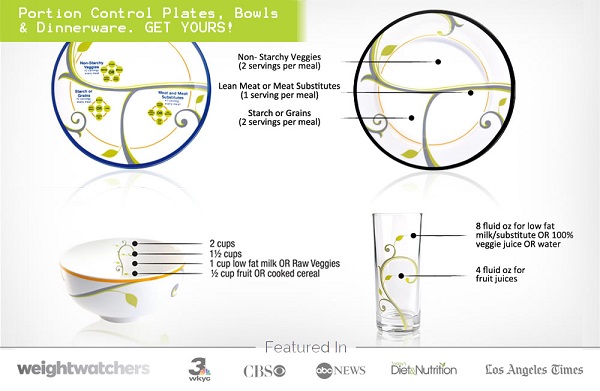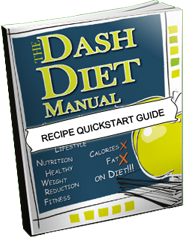Before the advent of synthetic medications, people have traditionally resorted to herbal-based concoctions to treat a myriad of known diseases. While much of the practice’s beginnings started with merely trial-and-error, these plants called herbs earned the respect of medical researchers due to their subsequent proven health benefits (Tabassum, N. & Ahmad, F., 2011).
But one does not have to be sickly to resort to herbs. Other times, it can also be used as either a prophylactic measure or a means to manage certain conditions should they arise, including the oftentimes seemingly asymptomatic case of high blood pressure (Al Disi, S. et al, 2016).
Unlike synthetic medications which doctors prescribe or that can be bought over-the-counter, herbs are naturally abundant in the environment that can be tapped as part of food or directly as a natural medicine.
Subsequently, that also suggests that people who suffer from disorder, like hypertension, may not necessarily have to spend a fortune for potentially deleterious hypotensive or anti-hypertensive medicines.
Herbs to Lower Blood Pressure
Here are the 10 best herbs you can incorporate as part of your diet in order to reap the benefit of managed blood pressure:
1. Oregano
The use of oregano as food or medicine harkens back thousands of years, especially in areas where it has been endemic. It is typically a common inclusion in the Mediterranean diet, which partly helps in the food choice’s “healthful” reputation.
While you may have the palate and discipline for healthy eating, people who may be suffering from hypertension should also consider incorporating this herb in their diet for its hypotensive capability.
Although there are plenty of factors as to how oregano exhibits this benefit to people, one highlight would be its carvacrol content that is said to mitigate arterial pressure and low heart rate (Aydin, Y. et al, 2007; Leyva-Lopez, N. et al, 2017).
2. Basil
Basil is yet another common plant that can be added to our diet in order to experience the advantage of lowered blood pressure. While it is established that basil is indeed capable of reducing the body’s blood pressure, current findings state that the effect may be short-lived (Tabassum, N. & Ahmad, F., 2011).
While tested only on animal, the finding that basil has substantial amount of eugenol, which is subsequently identified as having hypotensive capability on the tested subject, raises that the herb’s capability can be further enhanced in a more dose-dependent manner (Lahlou, S. et al, 2004).
3. Matcha
Most people’s encounter—or lack thereof—with matcha would typically with its tea form. Essentially a concentrated extracted of green tea, matcha embodies great health-boosting properties that comes naturally with the plant.
One of the major advantage to sipping matcha is in its potency to inhibit certain enzymes that otherwise induce an increase in the body’s blood pressure and clear the body of elements that impede good blood flow.
A study by Chinese researchers Yang, YC. Et al, (2004) has established that drinking tea, including matcha tea, helps offset the occurrence of hypertension.
4. Cat’s Claw
Cat’s claw is an herb, which has popular traditional use in oriental medicine, particularly in addressing blood pressure disorder.
Interest in this exotic plant’s ability to provide solution to high blood pressure resulted in the finding that it has an indole alkaloid, hirsutine, which plays essential role in the overall scheme of blood flow in the body at the chemical level. Particularly, by affecting the Ca2+ channels in the body (Tabassum, N. & Ahmad, F., 2011).
5. Celery
Not many may have the taste buds for celery’s strong taste. But those who consume it regularly are getting the benefit of reduced blood pressure.
In a study by Rusnoto, R. et al, (2019), it was found out that the administering celery juice to test subjects in a month resulted in a reduced blood pressure reading in all subjects.
6. Moringa
Like many plants, moringa is an herb that is known for its diverse names. But despite nomenclature differences, the plant is altogether remarkable—it is one of the most nutrient-densed food out there and it has the power to induce hypotension.
Drawing from the aforementioned benefit to blood pressure, Tabassum, N. & Ahmad, F., (2011) corroborated the notion by establishing the notion based on animal model in a dose-dependent manner.
7. Harmal
Harmal is a plant that may be a stranger to most people. But, in Iran, where it is most prominent and endemic, this herb is well-known for its hypotensive effects.
Harmal draws its benefits from its three major components, namely harmalol, harmaline, and harmine—all of which identified as playing individual role in the regulation of blood pressure, based on animal model (Aarons, D. et al, 1977).
8. Mistletoe
Mistletoe is technically classified as a hemiparasitic plant that grows on trees. But while that may give this plant ill repute to most people, the mistletoe is actually helpful in our bout against elevated blood pressure.
A study by Radenkovic, M. et al, (2009), has found out that an extract of the mistletoe plant contains ethanol, ethyl acetate, and ether, all of which having a notable effect in lowering blood pressure, especially ethanol.
9. Coriander
Coriander is a herb known for its fragrant smell and its popular inclusion as an ingredients in some dishes. But this plant is also has strong following in the medical space, too, thanks to its established therapeutic benefits, especially involving blood pressure.
When consumed, the plant is said to induce a calming effect on the nervous system which translates to lowered blood pressure as induced by blood vessel tissue dilation (Al Disi, S. et al, 2016).
10. Nela Nelli
Nella Nelli, also known as Gale of the Wind, is a herb that works directly and indirectly in ameliorating the issue of elevated blood pressure. One is by inducing diuresis—making you urinate—and another is by positively affecting the cardiac tissues responsible in blood flow (Amaechina, F. & Omogbai, E., 2007).
So, there you have it—the 10 best herbs you could consume in order to maintain a healthy blood pressure and mitigate the chances of developing complication born from the condition.







 We're committed to bringing you the best in health and helping you discover the wonderful world of the DASH diet. If you're looking to control your blood pressure, hypertension, or just looking to get into great health, we're here to help.
We're committed to bringing you the best in health and helping you discover the wonderful world of the DASH diet. If you're looking to control your blood pressure, hypertension, or just looking to get into great health, we're here to help. 



